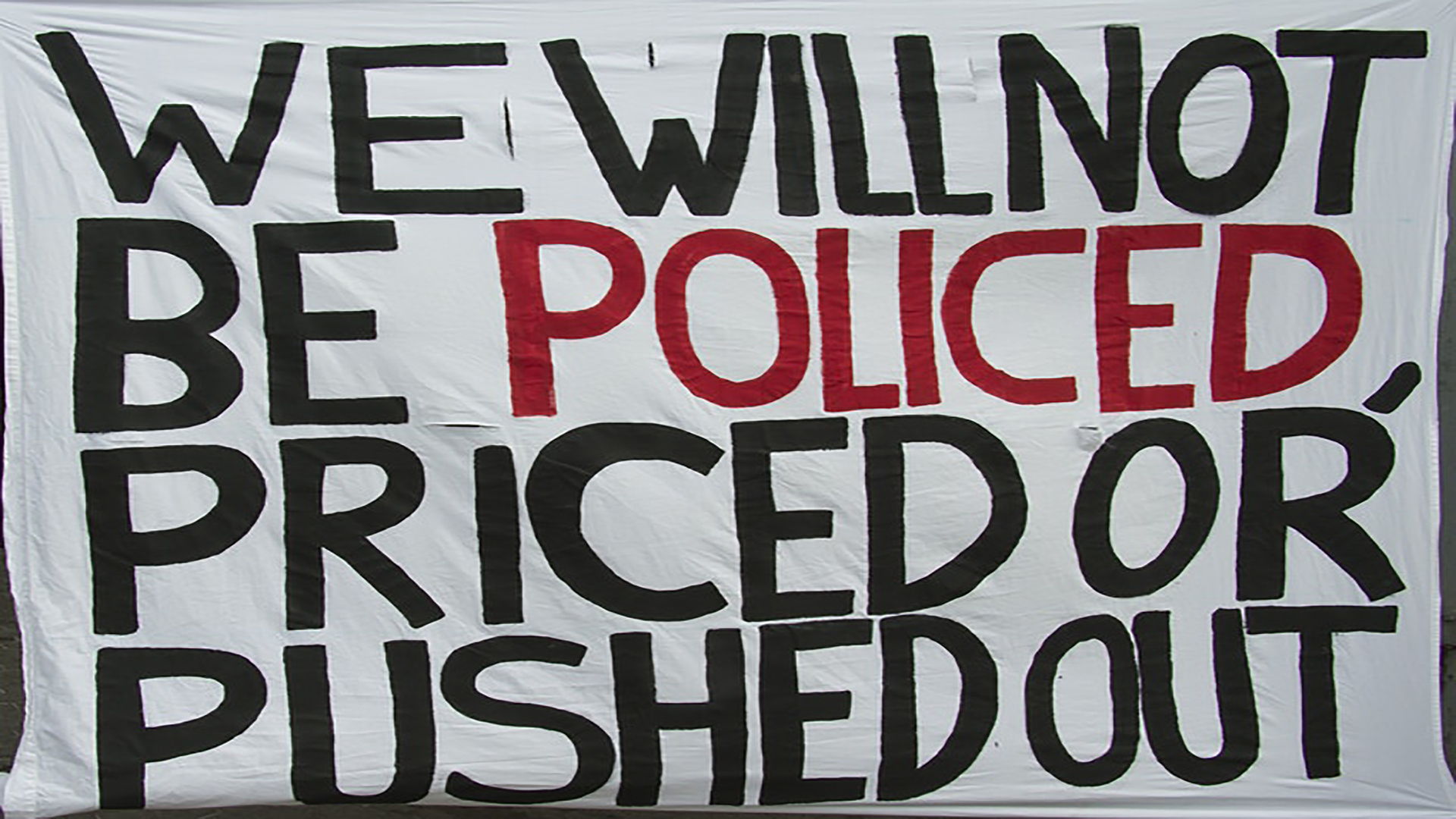
Pride Denied: Homonationalism & the Future of Queer Politics
par Kami Chisholm
Activists and artists resist assimilation, challenge the corporatization of LGBT politics, and fight the ongoing oppression of queer and trans people.
2016 · 1h10m · Canada
(sous-titres)
Partager
À propos du film
Set to the backdrop of World Pride in Toronto in June 2014, Pride Denied explores the concepts of pride and homonationalism through interviews with activists, community organizers, artists, and academics.
As same sex marriage becomes established as law across the Canada and the US, some LGBT leaders and organizations have declared the battle against LGBT discrimination all but won. But this is far from the reality for many for whom marriage offers only select benefits, and who continue to struggle to meet basic necessities in their daily lives.
Pride Denied thus focuses on sites of ongoing oppression of queer and trans people that have been largely obscured in the mainstream media by the celebration of advances like marriage rights. These urgent issues include: state violence (disproportionally faced by queer and trans people of color); the criminalization of public sex (especially targeting sex workers), alongside the marginalization of other queer forms of intimacy that aren’t hetero and homonormative couplings; and the ongoing lack of access for many to basic rights such as economic security, health care, affordable housing, and immigration.
In taking up these crucial issues, Pride Denied asks: what is “pride?” And what does it mean to us now, in 2015? Many pride events and organizations in the US and Canada evolved out of organizing by grass-roots gay liberation movements in the 60s, 70s, and 80s that focused in particular on challenging systemic police and state violence.
Most of us are familiar with the story of how many north american pride events initially emerged out of sites of revolt and resistance — such as the anti-police riots at the Stonewall Inn in NYC in 1969 and the protests that emerged after police bathhouse raids in Toronto 1981.
Today, however, pride is big business. Non-profits formed for the purpose of hosting pride events in cities such as Toronto, San Francisco, and New York sport multi-million dollar budgets. But where and how is this money spent? And to what ends?
Pride Denied imagines ways of celebrating the past while continuing to build on the many accomplishments of queer and trans activists to end oppression for everyone. As Christina Hanhardt reminds us in the film: “LGBT and queer activists have been the best at showing us for generations that protest and transformation can also be about pleasure, about pride, about humor and fun, and about celebrating what we have while asking for more.”
Pride Denied also endeavors to create a visible archive of the often unrecognized work of contemporary activists, artists, and academics who take on the most pressing issues facing queer and trans people today.
Brilliant and engaging interview subjects featured in Pride Denied include: community activists and educators Monica Forrester, Chanelle Gallant, Akio Maroon, Tim McCaskell, Anna Rekhviashvili; artists Kim Katrin Milan and Gein Wong; and activist-academics such as Ryan Conrad, Christina Hanhardt, Natalie Kouri-Towe, Jasbir Puar, and Dean Spade.
Projections à venir
Restez à l'écoute pour des projections à venir!

